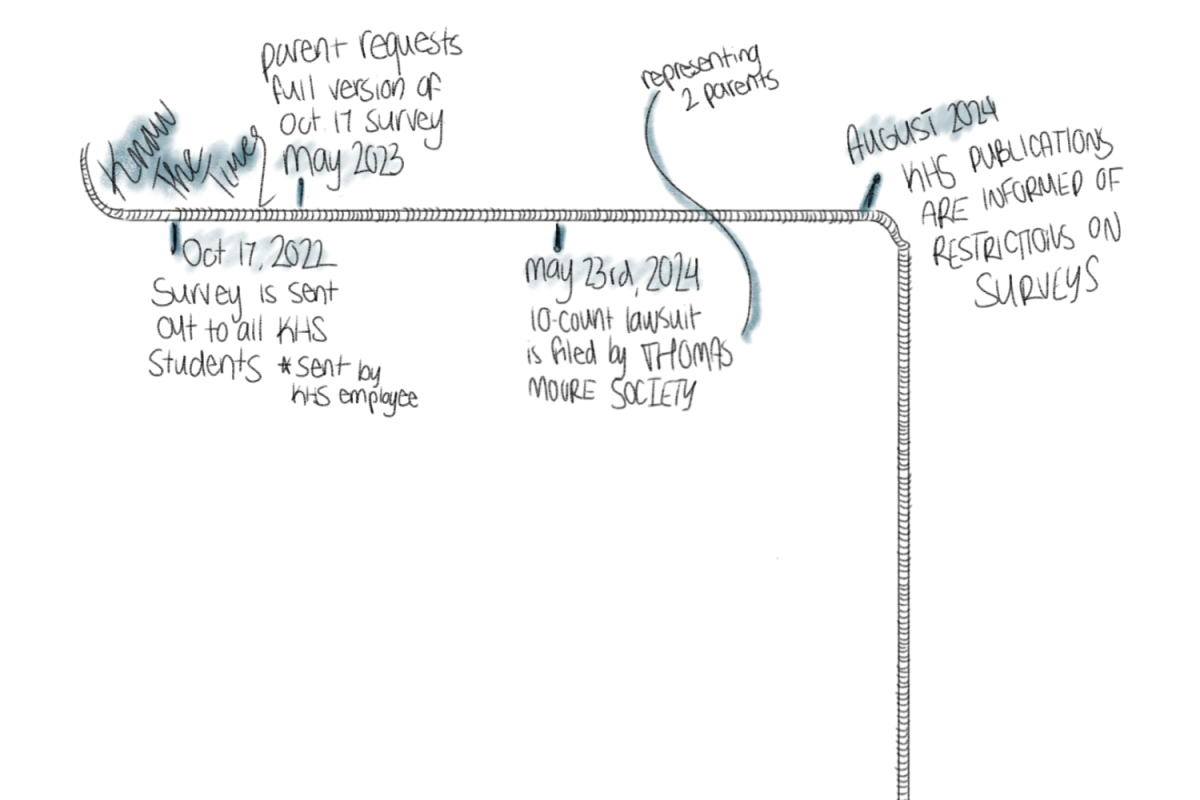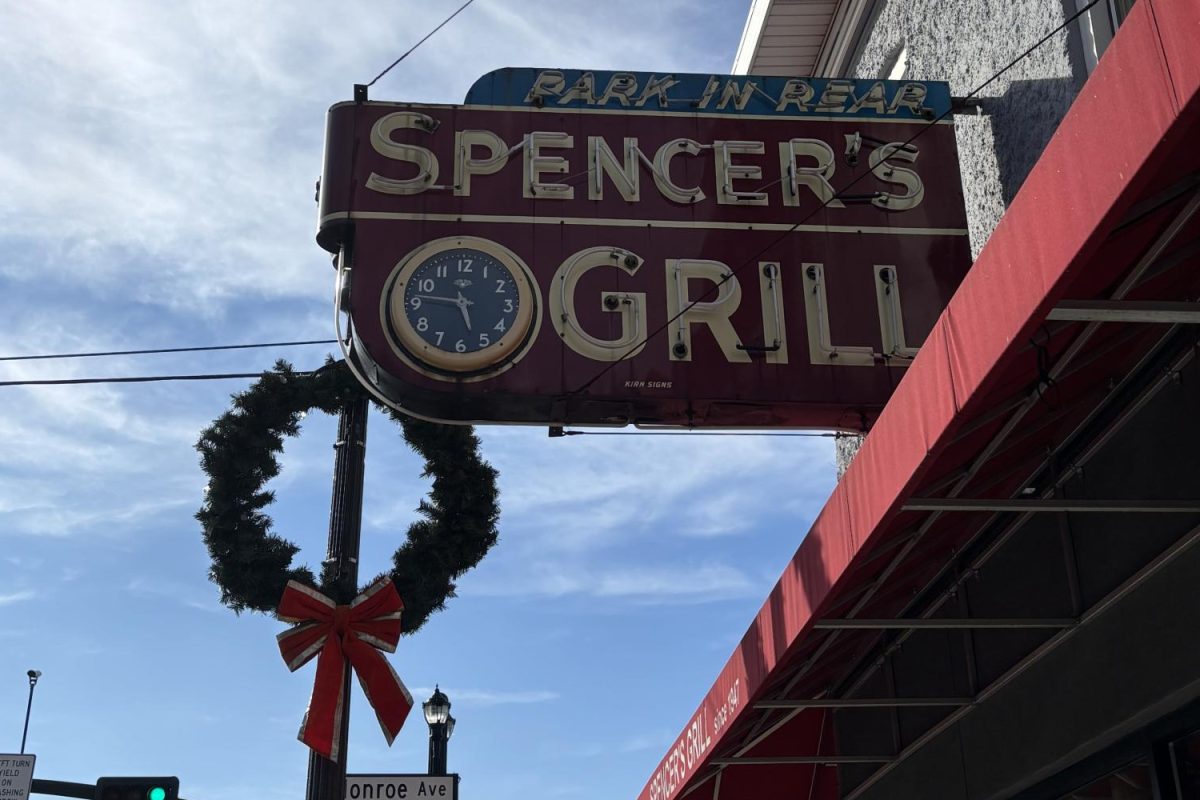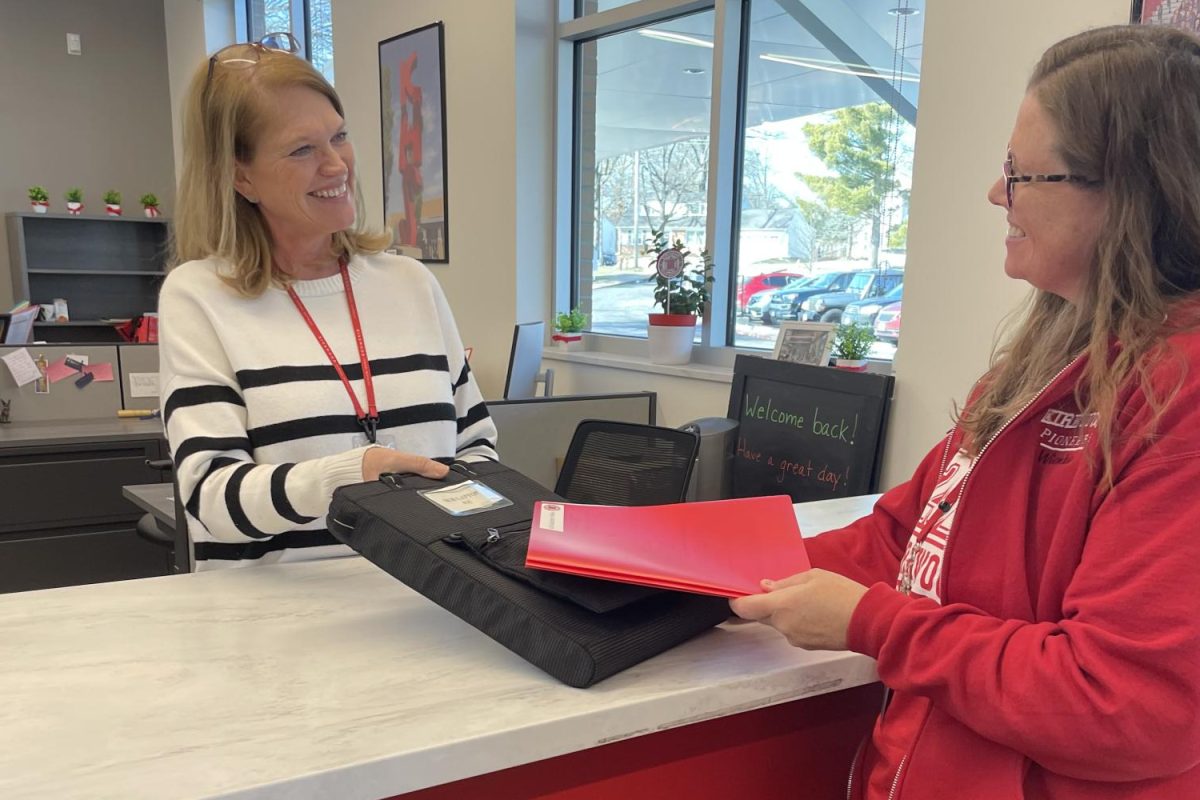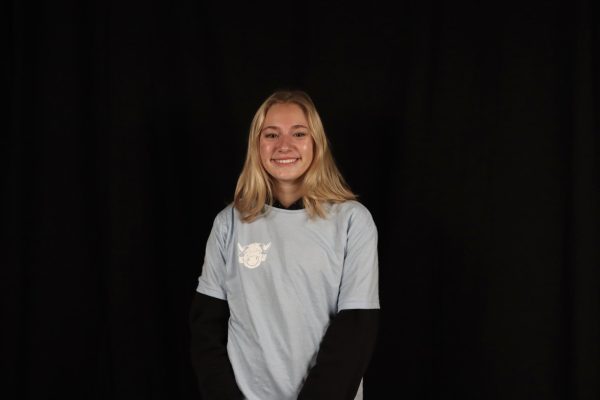Eighteen months ago, controversy struck Pioneer yearbook when a group of concerned parents from the Kirkwood community went after high school journalists for publishing controversial pages discussing casual sexual relationships featuring photos of various birth control options and survey results on student’s sexual behaviors. By May 23, 2023, a lawsuit against the Kirkwood School District under the Sunshine Law was filed by the Thomas Moore Society, targeting Superintendent Dr. David Ulrich and Custodian of Records Laura HeidenReich. The lawsuit stemmed from the school district’s inability to provide information regarding the survey questions asked to gather data on student’s sexual behaviors, which were emailed via a Kirkwood High School employee during the 2022-23 school year.
Despite the Thomas Moore Society’s intentions to directly target Ulrich and HeidenReich, as of 2024, KHS journalism students feel as if they too are receiving drastic alterations to their publications due to the superiors inability to locate previous survey data. Recently, KSD leaders have imposed new restrictions on the use of surveys in both The Kirkwood Call (TKC) and Pioneer Yearbook, via advice from BOE district lawyers. These restrictions include the enforcement of KSD Policy JHDA, which is currently being used to prevent these publications from releasing surveys covering sensitive topics, and to ban their use of sensitive survey results, subjecting both to prior review.
Carter Schwent, senior and a current Editor-in-Chief of Pioneer, said that while he understands not being able to send out selective survey questions through a Kirkwood High School employee, being prevented from releasing survey questions from a personal email through social media is unacceptable. He said that he believes getting the real, raw questions out to students is important to creating a realistic high school yearbook.
“It’s what happens between kids our age and we feel that it’s important that a yearbook encases everything that happens in the year, whether it’s good or bad,” Schwent said. “We’re still going to do the hookup spread, it’s in our rights to.”
While the KSD has been using Policy JHDA and the PPRA to withstrain Pioneer and TKC’s surveying abilities, Schwent said that he and other editors-in-chief have been doing their own research to earn back their rights in full. Jack Schwalb, senior and another Pioneer Editor-in-Chief has reached out to the Student Press Law Center (SPLC) and a few experts at Washington University for more information on how they can handle the situation.
“The SPLC said it was [preliminary] prior review based on what they saw,” Schwalb said. “And there’s nothing in the school board policy that says anything about [condoning] prior review, only that they approve of our Editorial Policy.”
All KHS Journalism publications use the Editorial Policy published on TKC’s website, which clearly states that all products created by Pioneer or TKC can and will not be reviewed or restrained by school officials prior to publication or distribution, protecting all student journalists at KHS from prior review. Mason Heller, former TKC Editor-in-Chief and 2024 alum, said he believes the KSD board has only recently begun implementing prior review upon its student publications due to the 2023 lawsuit.
“[There are] a minority of parents [in the KSD] that are very sensitive and do not respect the freedom of the press,” Heller said. “So they choose to challenge what they think [high school journalists] can address. As a result, the school district has attacked our journalism to make parents happy, sacrificing our programs [in the process].”
One of the biggest downfalls Heller said both Pioneer and TKC have been subjected to since the enforcement of Policy JHDA is the potential loss of the First Amendment Press Freedom Award (FAPFA), an honor KHS has been awarded more times than any other school in the country. The FAPFA is an award given to schools who diligently support press freedom throughout their entire student media program.
“We were a top A program before this [policy] was enforced,” Heller said. “And sure it’s not entirely the policy’s fault, but it’s really hard to win awards for having freedom of the press when one of the most basic rights there is, [to ask people surveying questions] is taken away.”
With these restrictions, Assistant Superintendent Dr. Matt Bailey said he believes journalists at KHS still have a lot of flexibility in what they do. Asking the hard hitting questions face to face, deciding editorial calendars and addressing issues that are a concern for the student body, these are the things Bailey said are important that students at KHS focus on. Still, according to JEA, to qualify for FAPFA a school must support its journalists entirely, meaning that withholding their abilities to survey students could remove them from winning this award.
“[The BOE doesn’t] stand by their students at all, they love what Pioneer and TKC do for their reputation, but refuse to stand by them when [controversy arises],” Heller said. “It’s really hypocritical of them to take credit for the awards and then take away the rights [students] need to win them.”










